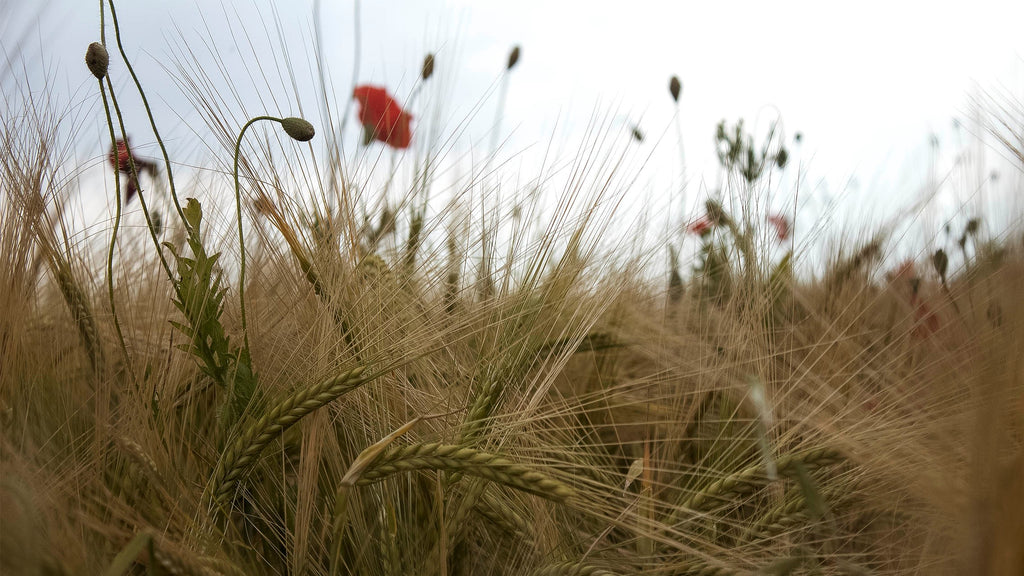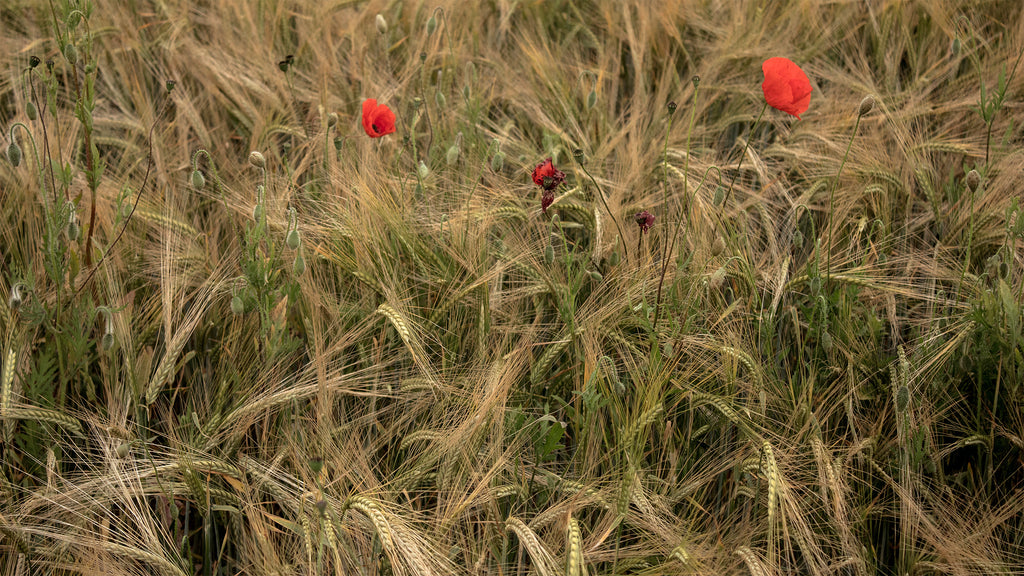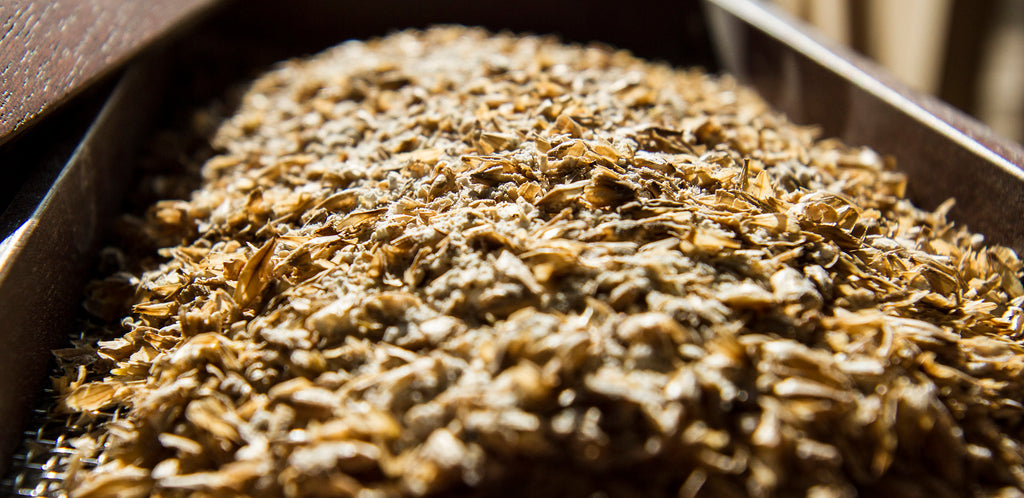
There are so many reasons to love organic farming, but giving tours to farmers who visit the distillery often throws up interesting questions or comments. ‘Surely it is more prone to disease and pests’, ‘yes but the barley isn’t of very good quality’, ‘but the yield is smaller’. The one that sticks in our mind the most, and the one that may resonate with the gardeners among us is, ‘it looks so untidy!’ There are two sides to every story, so below we take a look at some of the advantages and disadvantages of organic farming.
WHAT'S SO GREAT ABOUT IT?
NATURAL FERTILISERS
As you probably know, organic farming doesn't allow for artificial fertilisers (such as nitrogen) to be added to the land. Instead, farmers tend to use the ‘whole farm approach’ which includes using livestock manure to fertilise their soil in rotation with arable crops. As well as reducing the cost to the farmer (pesticides and fertilisers tend to be quite expensive), the carbon cost associated with their manufacture and transport to the field is lessened. A win win we would say.
BETTER SOIL QUALITY
Most organic farms use a planting and harvesting rotation routine which naturally enhances the quality of the soil. Crops are rotated more frequently in order to avoid continuously stripping the soils of the same nutrients, and the farmers tend to till (a method of light ploughing) less frequently, enhancing nutrient levels and organic matter content. This will help the soil retain water which makes the crop more resilient to prolonged dry spells and helps reduce flooding in wet spells.
IMPROVED BIODIVERSITY
Unlike in conventional farming methods, no pesticides are used to control pests and diseases. A lack of pesticides means that other plants and wild flowers are given the opportunity to grow in the same areas. This in turn supports an abundance of pollinators and bird species which are in decline.
NUTRITIONAL CONTENT
The nutrient content of soil is the key to health of a plant. This can also affect how good it is for us when we consume it. There are numerous studies (including this one highlighted by the British Journal of Nutrition) indicating that organic produce generally has a better nutritional value than non-organic counterparts. There is also the added benefit of no residual pesticides in our food or our whisky!
CARBON SEQUESTRATION
Soil itself is a very effective carbon store. Through conversion of arable land to organic, the change in farming methods allows for the soil to absorb and lock away carbon dioxide from the atmosphere through the root systems of plants and grasses. We call this a carbon sink.

WHAT'S NOT SO GREAT?
LOWER YIELDS
The upshot of not applying fertilisers and pesticides to the land is that the crop will not grow as intensively. There will be other plant life, wildflowers and also weeds competing for the soils water and minerals, so you generally see a smaller tonnage of product per acre. Maybe 3-4 tonnes as opposed to 6-7.
MORE EXPENSIVE FOR THE CONSUMER
Because organic yields are smaller, this pushes the price per tonne up, which is good for the farmer (they are not losing out) but often increases the price of the end products.
LABOUR INTENSIVE
Organic farming isn’t easy. It’s a labour of love. It takes significant and specific knowledge, as well as many man hours to manage the crops (and everything that grows in between) in an environmentally friendly manner.
THE ADMIN
There are a lot of hoops to jump through to be certified organic. The process is lengthy, involves a lot of administration, and requires ongoing management with yearly audits to check that you are still compliant. The certification process is particularly lengthy for farmers, as a farm cannot become certified organic until three years have passed without any chemicals being sprayed on the land. Luckily though, there are subsidies in place for organic land conversion.

WHY WE CHOOSE ORGANIC
Across the globe, commercial farming is driven towards making every inch of land productive, whilst keeping market prices low in order to mass produce goods to supply to an ever increasing population. But this can come with consequences, including reducing biodiversity, species extinction, lower soil qualities and water pollution.
We believe that organic farming is the best way to protect the future of our planet, capturing carbon in the soil, providing habitats for wildlife to flourish and restoring soil quality.


Organic Farming is a sustainable farming that could our food security in the future, healthy foods, big contribution in helping our environment especially global warming or climate change, helps to restore our land, and biodiversity. Go go go ORGANIC.
Good on you for going the extra mile , environmental impact should be key to any business given the environmental crisis we face